User blog: Daniel Finney
The impacts of colonization are vast and interconnected. It honestly boggles my mind, especially when describing colonization as a verb, an action, something that happened over time and how that played out throughout indigenous history. The impacts colonization had on our bio-physiology through trauma - psychological impacts, but what is comparatively devastating is the loss of our social structures and value systems.
Reconciliation? To me means 'how do we get back to a time where what it meant to be indigenous is not in some way measured in parallel to an economic system that alienates us and leads us to believe we are less than. Our nationhood, our pride for being Indigenous, our sense of self!
I was only a few pages into the first chapter when a paragraph hit me and had me thinking about our sense of social status, how we value ourself. It started with "a cultural ethos emerges" and "the goal of higher status are denied to people" (pg.3). This to me is a snapshot and a segway into a discussion of a "sense of social status." And what is a sense of social status pre and postcolonialism?
'Social status' to me is a social and personal value hierarchy. It's a "sense of", or an idea of values, which we learn during childhood during socialization, mostly. Social Status existed in our traditional social systems and exists in a different form today but is more reflective of capitalism.
Historically:
A mention should be made for dominance hierarchies because they existed in the past and today, where people were/are physically dominant or dominant in a trade or craft. When I think of Social Status and Pre colonialism I also think of it as a Dominance Hierarchy - what people are good at. Validation comes from doing a good job in comparison to a job you've done in the past or the work of others. Ideally, you are comparing yourself to who you were in the past and not who somebody else is today, though. lol
But I also see Social Status historically as the sense of self that comes from validation from the community. Each member holds the other up. There's comradery, solidarity, brotherhood, sisterhood. It's a heightened sense of self. The community members meet the needs of others so others can meet the community needs. You will experience this in life. If you were hungry you will think about feeding yourself. At that moment it's difficult to think about meeting somebody else needs if your mind was on your own needs - a community will meet your needs so you can meet their needs. A community raises a child is an example.
Link Between Social Status, Culture of poverty(pg3) and Capitalism:
When we have a heightened sense of social status we generally feel good about ourselves because it releases "dopamine, oxytocin, serotonin, and endorphins". We experience lower levels of stress and we generally have a higher sense of well being. In a way, a heightened sense of social status is like a psychological immune system like laughing, which makes you feel better when you are down and release stress. If you have a good friend who makes you feel good about yourself, compliments you, tells you how important you are, they are an asset. They are your medicine.
In the past, our social system had our own social status hierarchies, and these were replaced by capitalist values where a person is only worth the money in their pocket. This system was imposed on us, additionally, we were denied "higher status" in the capitalistic landscape by economic oppression.
When we do not value ourselves because of our lack of sense of social status we slip into a state of despair because of a lack of 'feel-good hormones'. If we cannot raise ourselves to a higher level of the social status hierarchy we become depressed. Colonialism replaced our value system, what we used to raise of sense of social status, with that of a capitalistic view of 'money in your wallet = worth'.
The book makes the comparison that "despair and hopelessness are central to the culture of poverty." I attempted to expand on it from my point of view.
Daniel Finney
P.S. Ramble on and on. I know.
